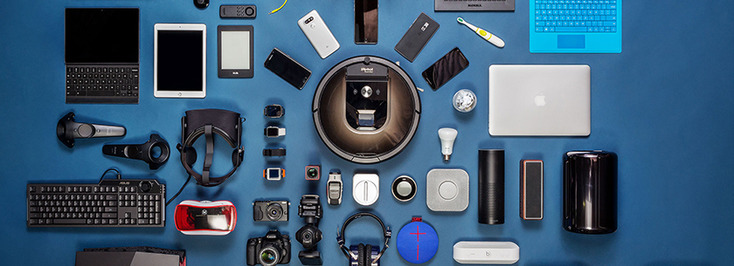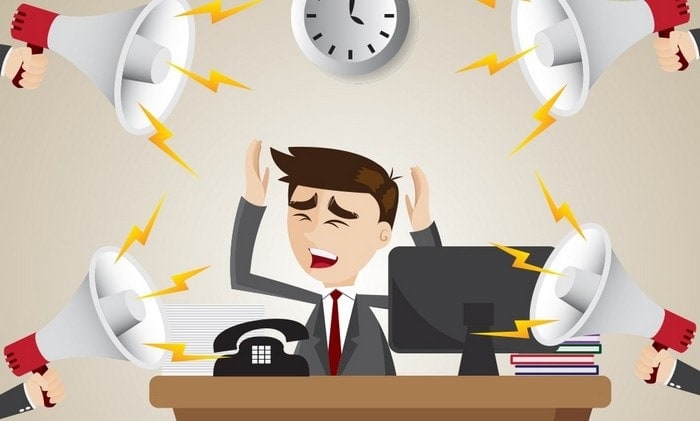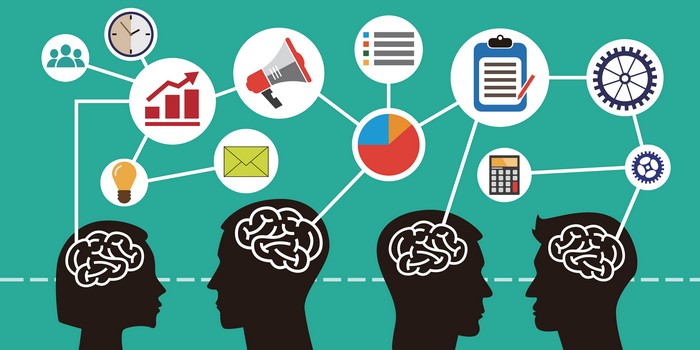There are various skill sets required at a workplace to conduct and complete all the tasks and responsibilities efficiently and effectively. And one of them is active listening. It is a learned skill, and one can elevate it with a lot of experience and knowledge.
Listening is an active process and not a passive one. However, there is an array of Barriers to Effective Listening as many a time we are not able to capable to absorb the vital information from the external world.
At a workplace, lack of communication between the team members and poor listening skills can cause a lot of issues, misunderstandings, and conflicts that can cause the business a lot of harm.
Plus the Barriers to Effective Listening can also cost an individual his job, morale, motivation, and credibility at the workplace.
Table of Contents
Top 5 Barriers to Effective Listening at a workplace
#1 Distraction and being preoccupied
Being distracted and preoccupied during the peak hours of work or during important meetings and seminars is rated as one of the prominent Barriers to Effective Listening.
It is like you are physically present but mentally absent. The mind wanders, and you are faking your attention to listening to the communication efficiently. But you have no idea about what exactly is the topic of discussion in the meeting.
Many a time, bosses and seniors figure out that you are not listening to the conversation owing to their years of experience and handling such issue.
Factors that cause distraction and being preoccupied:
#1.1 Mobile phones and other smart devices
Today, social media is one of the most significant Barriers to Effective Listening as we are hooked on the various networking and chatting apps even during essential work meetings and seminars that affect listening skills. And all of it results in the low levels of efficiency and productivity.
#1.2 Emotions
Human emotions and feelings can also act the significant Barriers to Effective Listening. If a person is going through a breakup, divorce, financial issues, family problems, and office politics is quite likely to get lost in his series of thoughts that form a vicious circle.
Such issues need to be curbed and correct at the earliest as they can result in anxiety, depression, and various other mental ailments.
#1.3 Visual distraction
If the meeting is happening at a hotel, and you are unable to take away your attention from the interiors or other people at the hotel is also a form of a visual distraction.
Watching television or presentation slides without giving proper attention to the discussion results in the Barriers to Effective Listening
#2 Noisy environment
When the environment at the workplace is quite noisy, it gets difficult for the employees to work properly and listen effectively during the meetings and important presentations.
Fights between the employees, construction work, domestic work at the office, and issues with the IT infrastructure of the office results in the noisy environment leading as one of the major Barriers to Effective Listening
#3 Mindset and Personal Perspectives
Most of the people that we deal with come with their specific mindset, perspectives, and preconceived notions about the people whom they are working with an office or about the task in hand.
And their perspectives can be positive as well as negative in nature and the overall approach. And if it is negative, then working with that person can become quite difficult as it is tough to adjust and change with their mindset.
They can have a personal bias or prejudice towards their friend who is working in the same office, and they want him to complete that specific task with them. And they will not listen to your opinions, suggestions, and ideas no matter how good they are.
Insecurities and jealousy at the workplace can also act as one of the major Barriers to Effective Listening. Some of the team members will not be very happy with your growth and progress, and if the person is your senior, he will have insecurity issues about his position and designation. Hence, all your ideas and suggestions will go on his deaf ears.
If the work tasks are boring in nature, team members are likely to get distracted, resulting in the Barriers to Effective Listening.
#4 Interruptions
Interrupting someone during his presentation or an important speech is one also one of the biggest Barriers to Effective Listening. It also means that you are disrespecting the speaker by interrupting him again and again between his speech and conversation with the crowd. It hugely affects the listening ability of other people at the seminar or a meeting.
There could be various reasons why the person is getting interrupted:
- Jealousy or insecurity
- Making his attempt to address the crowd a failure
- Challenging his knowledge and expertise
- To disturb the environment
Such tactics are always done on purpose with an ulterior motive behind the act. In such scenarios, the top management has to intervene in between and stop the person for interrupting and interjecting between the important meeting and conversation.
#5 Physical state
The physical state of a person can also act as one of the top Barriers to Effective Listening as his body is not in a proper position and capacity to absorb the information and process it in mind to accomplish the tasks and responsibilities.
Various reasons are listed below:
- If the person is hungry, his hunger pangs will make him inattentive during the meeting as his body lacks the required nutrition and energy to listen effectively.
- Sitting in an uncomfortable position can hinder the listening process.
- Depression and anxiety issues also make the body weak and low on agility.
- Health issues such as fever, cough, cold, and stomach issues also act as Barriers to Effective Listening.
- If the person is tired and exhausted also makes him deviate from the important conversation.
Conclusion
Various Barriers to Effective Listening can affect the productivity skills of the employees and the overall organization.
The management and HR department of the firm has to figure out such issues and take necessary actions to iron out the same for the efficient and effective workflow.
Liked this post? Check out the complete series on Personal Development




I am doing some research on listening barriers and came across your article. I can’t find any source material cited. Could you share with me the scientific research sources you used to identify these listening barriers?
Thank you.